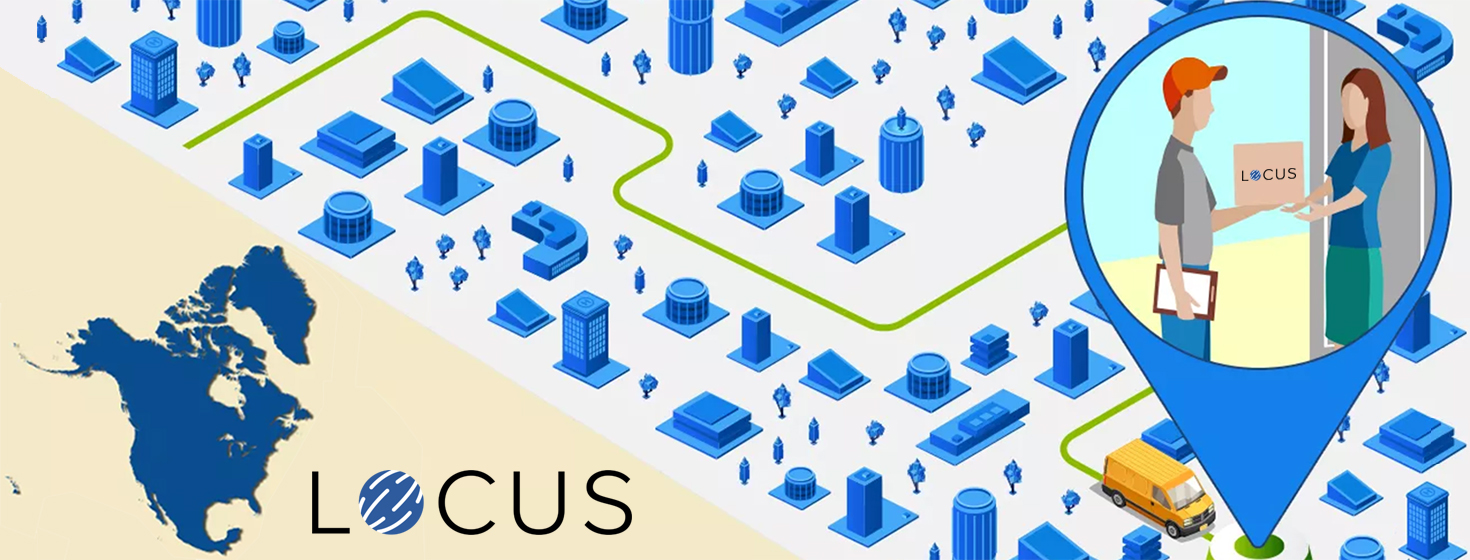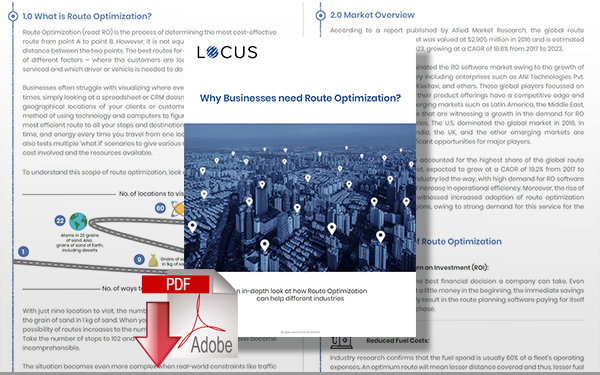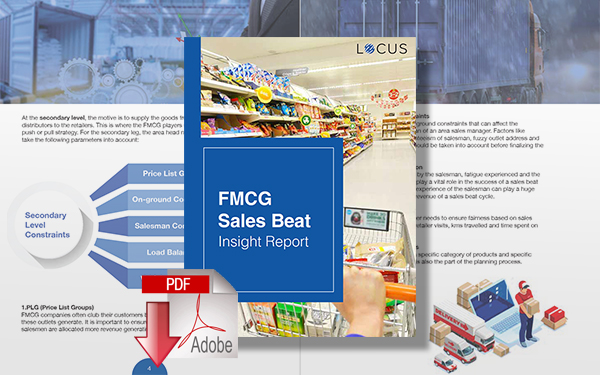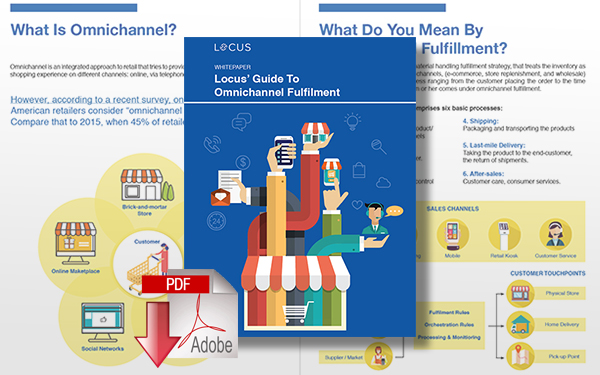Trouble in Paradise for Third-Party Logistics & Their Fleets

With many third-party logistics companies, 3PLs, not able to make the best use of their own fleets, the bond between vehicles and shipping companies is on shaky ground when it comes to omnichannel and ecommerce deliveries.
What Happens When You’re Best Friend Turns into Your Biggest Foe?
Shock, Anguish, and Sadness.
That’s the situation that the 3PL companies are dealing with right now.
Trucks, Ships, and Boxes; their most intimate homies have rebelled against them.
Believe it or not, managing fleet is one of the biggest challenges for 3PL companies. Cutting transportation costs is the topmost concern for 3PL providers according to this Capgemini study.
Rising consumer expectations due to the growth of the omnichannel and e-commerce industry have reduced the willingness to pay for quicker deliveries, with about 64 percent of consumers unwilling to pay anything extra for less than two-day shipping.
The evolution of the omnichannel and e-commerce industry has also added to the pressure of better last-mile deliveries.
Ad-hoc online sales and sudden seasonal spikes in demand mean that shippers might struggle to process all the orders in a timely fashion.
This can lead to an increase in overtime, a sudden hurry to hire temporary employees, and a lack of branded delivery supplies.
According to another study, 40% of firms have reported increased rates, 29% say assets aren’t available to move shipments when needed, and 30% have to outsource their work with larger third-party logistics to increase capacity.
With 3PL companies not able to make the best use of their own fleet, the bond between vehicles and shipping companies is on shaky ground.
Reverse logistics is another pain point for today’s 3PL players. The process of moving goods from their final destination for handling exchanges, returns, refunds, or proper disposal is proving too much to handle for 3PL organizations and their fleets.
Increasing return requests need extra man-hours and additional shipping supplies which are acting as a major deterrent in the relationship between fleets and their 3PL counterparts.
The impact of an online retail customer’s return experience can be summed up as below.
- 85% of customers WILL NOT shop with you again if the return process is not convenient
- 95% of customers WILL shop with you again if the returns process is convenient.
Source: Harris Interactive
So, now that we have listed the issues in the relationship, what can 3PL companies do to befriend their fleet again?
Here are a few suggestions from our side:
1. Find a Friendlier ‘Route’
Having to move back and forth for deliveries can throw off the best of fleets. Additionally, they also cause inefficiency and additional costs in the supply chain.
Having an automated route planner that generates optimal routes while considering multiple real-life constraints and distribution models can go a long way in patching up the relationship between the fleet and 3PL companies.
2. ‘Clubbing’ Together
As discussed above, reverse logistics has become a major apple of discord between organizations and fleet operations.
A little ‘clubbing’ together of forward and reverse logistics based on properties such as preferred delivery time slots, priority orders, location preference, and order specifications (weight, size, etc.) can help in burying the hatchet between the old friends.
3. Mixing It Up
A pinch of owned vehicles, a dash of rented ones. Optimal fleet mix requires respecting business as well as local constraints such as traffic, route restrictions, etc.
Solutions that give the best combination of captive and market vehicles based on costs will aid in providing amicability to the two parties.
4. Transparency in the Relationship
Having end-to-end visibility of on-ground resources can provide predictive alerts on delays, vehicle breakdowns, idle time, etc. to improve both customer experience and efficiency in operations.
5. Planning for the Future
Not just sudden demand spikes, but also the year to year increase in demand and business.
Solutions that plan fleet for the current need and potential growth in the future and provide an estimate of vehicle requirements for better contract renegotiation can provide long-term stability to the relationship between the fleet and the company.
Apart from providing excellent relationship advice, Locus helps in optimizing your fleet by managing variability in your business.
Our AI-based solutions along with our proprietary vehicle allocation engine ensure that you only use the optimal number of vehicles required with the minimum logistics costs;
Locus Product Solutions
Dispatcher - Not mere route planner but your algorithmic route optimization officer
MotionTrack - Real-time fleet tracking, insights & analytics
IntelliSort - Automated shipment sorting and rider allocation
Field Pro - Beat Planning Software for higher sales productivity
Want to Optimize your Supply Chain? Schedule a Demo Now!
Related Article: How to Tackle Last-Mile Delivery Challenges Using Technology
Related White Papers
Why Businesses Need Route Optimization
This white paper provides an in-depth look at how route optimization software can provide the most direct and most efficient route to all your stops and destinations, and how it allows you to save money, time, and energy every time you travel from one location to another. Download Now!
Fast-Moving Consumer Goods Sales Beat Insight Report
In this report, we describe how Locus provides automated sales beat plans to optimize the mobile workforce for increased profitability, resource efficiency, and time savings. Download Now!
A Guide To Omnichannel Fulfillment
According to a recent survey, only 22% of North American retailers consider “omnichannel efforts” a top priority, compare that to 2015 when 45% of retailers claimed the same. Download Now!
More Related Content from Locus
Article Topics
Locus News & Resources
How Can White Glove Service Increase Customer Loyalty? Building Your Business Around a Hyperlocal On-Demand Delivery Model AI-Backed Route Planning Solutions for Ecommerce Players U.S. and Canada Border will Temporarily Close amid Coronavirus Outbreak Multi-Echelon Supply Chain Inventory Optimization Slot Management: Customer-Preferred Delivery Time Windows Last Mile Delivery Route Optimization and the Changing Logistics of Grocery Stores More LocusLatest in Transportation
FedEx Announces Plans to Shut Down Four Facilities The Two Most Important Factors in Last-Mile Delivery Most Companies Unprepared For Supply Chain Emergency Baltimore Bridge Collapse: Impact on Freight Navigating Amazon Logistics’ Growth Shakes Up Shipping Industry in 2023 Nissan Channels Tesla With Its Latest Manufacturing Process Why are Diesel Prices Climbing Back Over $4 a Gallon? More Transportation

















